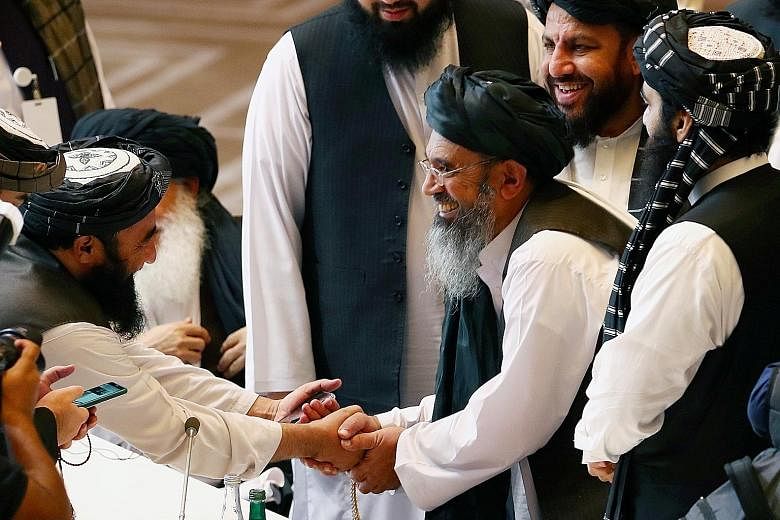DOHA • Afghan government representatives and Taleban insurgents have gathered for historic peace talks aimed at ending two decades of war that has killed tens of thousands of combatants and civilians.
Ahead of face-to-face negotiations in coming days, the warring sides were urged by various countries and groups to reach an immediate ceasefire and forge an agreement that upholds women's rights.
The administration of US President Donald Trump, who is eager to claim an end to America's longest conflict as he seeks re-election, expressed its intention to use aid as leverage for a deal.
The opening ceremony yesterday came one day after the 19th anniversary of the 9/11 attacks on the United States that triggered its military involvement in Afghanistan.
Secretary of State Mike Pompeo urged the warring sides to seize the opportunity to strike a comprehensive peace deal, while acknowledging many challenges lay ahead.
"The choice of your political system is yours to make," he told the opening ceremony in the Qatari capital Doha.
"We believe firmly that protecting the rights of all Afghans is the best way for you to break the cycle of violence."
The head of Afghanistan's peace council, Mr Abdullah Abdullah, said that even if the two sides could not agree on all points, they should compromise.
"My delegation (is) in Doha representing a political system that is supported by millions of men and women from a diversity of cultural, social and ethnic backgrounds in our homeland," he said.
Taleban leader Mullah Baradar Akhund said that Afghanistan should "have an Islamic system in which all tribes and ethnicities of the country find themselves without any discrimination and live their lives in love and brotherhood".
US Special Envoy Zalmay Khalilzad told reporters that preventing terrorism was the chief condition but that protecting minority and women's rights would also influence any future decisions on Congress-allocated funding.
"There is no blank cheque," said Mr Khalilzad.
Officials, diplomats and analysts say that although getting both sides to the negotiating table was a major achievement, this does not mean the path to peace will be easy, especially with violence increasing around the country.
How to include the Taleban, who have rejected the legitimacy of the Western-backed Afghan government, in any governing arrangement and how to safeguard the rights of women and minorities who suffered under Taleban rule are also big challenges.
"The Afghan people must be at the heart of this peace process... that leaves no one behind, including women," said Indonesian Foreign Minister Retno Marsudi.
Then-president George W. Bush sent US forces into Afghanistan a month after the 9/11 attacks to hunt down their mastermind, Osama bin Laden, a Saudi given sanctuary by the country's Islamist Taleban rulers.
Although the Taleban regime was quickly toppled, they regrouped and have since waged an insurgency that has sucked in Afghanistan's neighbours and troops from dozens of countries, including Nato forces.
REUTERS

